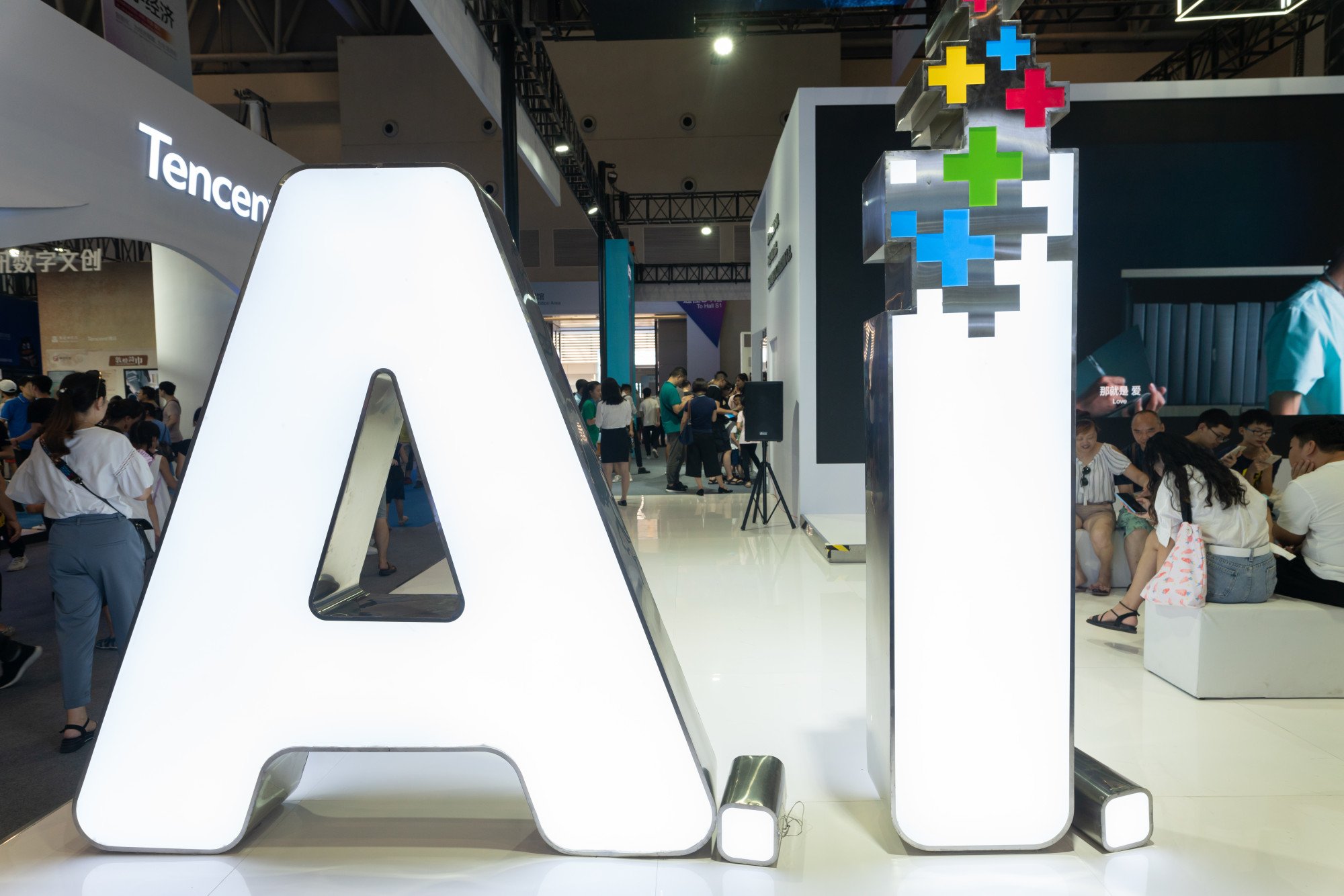
China’s AI talent pool limited amid surging job demand triggered by ChatGPT race, report finds
- The surging job demand is largely driven by increasing competition among China Big Tech to launch their large language models and applications
- Algorithm and natural language processing engineers are most sought after, accounting for 46 per cent and 11 per cent of demand, respectively
For every five new jobs in artificial intelligence (AI) in China, there are only two qualified workers in the labour market, a sign of the serious shortage of talent in the hot sector, according to a newly published report.
The surging demand is largely driven by increasing competition among Chinese Big Tech firms, including TikTok parent ByteDance, e-commerce powerhouse Alibaba Group Holding, video gaming giant Tencent Holdings and telecommunications equipment maker Huawei Technologies, to launch their large language models (LLMs) and AI applications, according to a report by Maimai, a career-focused social network service.
ByteDance had the largest demand among its peers, with the most openings for AI jobseekers over the last three years.
China’s career hopefuls find slim prospects in diminished job market
From January through August, the top five Chinese tech firms with the most AI jobs were ByteDance, food delivery giant Meituan, lifestyle social media platform Xiaohongshu, Alibaba and Huawei. Baidu and Tencent, which have both invested heavily in their generative AI services, came in sixth and seventh respectively.
Alibaba owns the South China Morning Post.
A raft of AI chatbots developed by Chinese tech giants have received government approval for public roll-out. The companies are now racing to infuse their products with AI, as well as the business operations of potential customers, to enhance productivity.
The demand has also pushed average monthly salaries for AI talent to 46,518 yuan (US$6,388), a more than 6 per cent increase from last year. The figure dwarfs the average monthly salary of 18,976 yuan for white collar workers in Beijing, according to information from Chinese headhunting service Liepin.
Algorithm and natural language processing engineers are the most sought-after talent, accounting for 46 per cent and 11 per cent of AI job demand, respectively, while computer-vision engineers, algorithm researchers, autonomous-driving-system engineers and data-mining engineers fill out the remainder.
The role of ChatGPT researcher accounted for 1.23 per cent of all available AI talent, highlighting efforts by Chinese tech firms to learn from OpenAI’s groundbreaking conversational bot ChatGPT that was launched almost a year ago, triggering a global AI arms race.
The Maimai report found that of all AI posts, corporate employers were willing to shell out the most for ChatGPT researchers, who earn as much as 66,000 yuan per month.

Beijing, where almost half of the country’s AI models are developed, accounted for 36 per cent of new AI job openings from January to August, followed by financial hub Shanghai, southern tech hub Shenzhen, eastern Hangzhou, and Guangzhou, the capital of southern Guangdong province. The top five cities generated almost 80 per cent of the country’s need for AI jobs, a sign of the concentration of the industry in top-tier Chinese cities.
The AI sector has become a rare bright spot in an otherwise downcast Chinese job market, separate research by Liepin noted earlier this year.
Fresh graduates with degrees related to LLMs are in short supply in a market where the youth jobless rate has hit record highs, according to Liepin’s 2023 employment report for Chinese university graduates.

